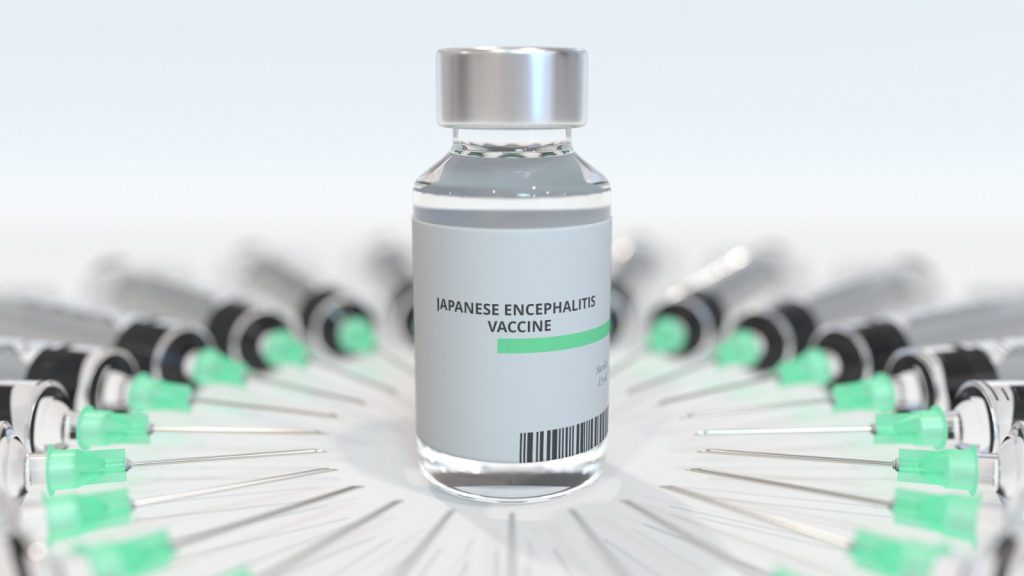Japanese encephalitis poses a significant health risk, particularly in parts of Asia. While not prevalent in the UK, awareness of this viral infection is crucial for travellers to affected regions. The Japanese encephalitis vaccine offers preventive measures against this potentially life-threatening disease.
Before opting for vaccination, it’s essential to comprehend its potential risks. In this blog, we’ll talk about the Japanese encephalitis disease, its vaccination and risks associated with its vaccination, empowering you to make informed health choices.
What is Japanese Encephalitis?
Japanese encephalitis is a viral infection transmitted by mosquitoes, primarily in rural areas of Asia. The virus can cause inflammation in the brain, leading to severe complications and, in some cases, death. While it may not be prevalent in the UK, travellers to affected regions should be aware of the risks.
What are the Symptoms of Japanese Encephalitis?
Japanese encephalitis symptoms can vary from mild flu-like symptoms to severe neurological complications like-
- High Fever
- Headache
- Feeling Nauseated
- Stomach Ache
While these symptoms go away on their own, in some people the infection spreads to the brain causing more serious symptoms like-
- Severe Headache
- Confusion
- Seizures
- Paralysis
If you experience any of these symptoms, especially after travelling to affected areas, seeking prompt medical attention is crucial for proper diagnosis and treatment.
What is the Treatment of Japanese Encephalitis?
If you experience severe symptoms, hospitalisation is necessary due to the potentially life-threatening nature of Japanese encephalitis. Japanese encephalitis treatment options include medications aimed at reducing symptoms, including pain relievers and steroids. In certain instances, Japanese encephalitis may lead to enduring complications like paralysis, seizures, and speech impairment.
When to Get Japanese Encephalitis Vaccine?
If you’re planning to visit regions where Japanese encephalitis is prevalent, health experts advise considering vaccination, particularly if:
- Your stay exceeds one month.
- Your accommodations are in rural areas.
- You’ll be near or visiting rice fields, wetlands, or areas with pig farming.
You can get a Japanese encephalitis jab from any of our travel health clinics.
What are the Risks Associated with Japanese Encephalitis Vaccines?
Here are the potential risks associated with Japanese encephalitis vaccination–
- Injection site reactions- Pain, redness, swelling, or soreness at the site of vaccination.
- Systemic reactions- Fever, headache, fatigue, muscle aches, and nausea may occur after vaccination.
- Allergic reactions- In rare cases, individuals may experience allergic reactions to components of the vaccine, such as gelatin or neomycin.
- Neurological complications- While extremely rare, there have been reports of neurological complications such as Guillain-Barré syndrome associated with Japanese encephalitis vaccination.
- Risk of adverse events- As with any vaccine, there is a minimal risk of severe adverse events, although these occurrences are exceedingly rare.
It’s important to discuss any concerns or pre-existing medical conditions with a healthcare professional before receiving the Japanese encephalitis vaccine.
Prioritise Your Health with Touchwood Pharmacy
While Japanese encephalitis vaccination is an essential preventive measure, it’s crucial to understand the risks and benefits associated with it. At Touchwood Pharmacy, we prioritise your health and safety, which is why we provide comprehensive information and vaccination services to help you make informed decisions.
If you have any concerns or questions about Japanese Encephalitis vaccination or any other health-related matter, and you want to get a Japanese encephalitis vaccine in the UK, book an appointment with us to stay protected.



















